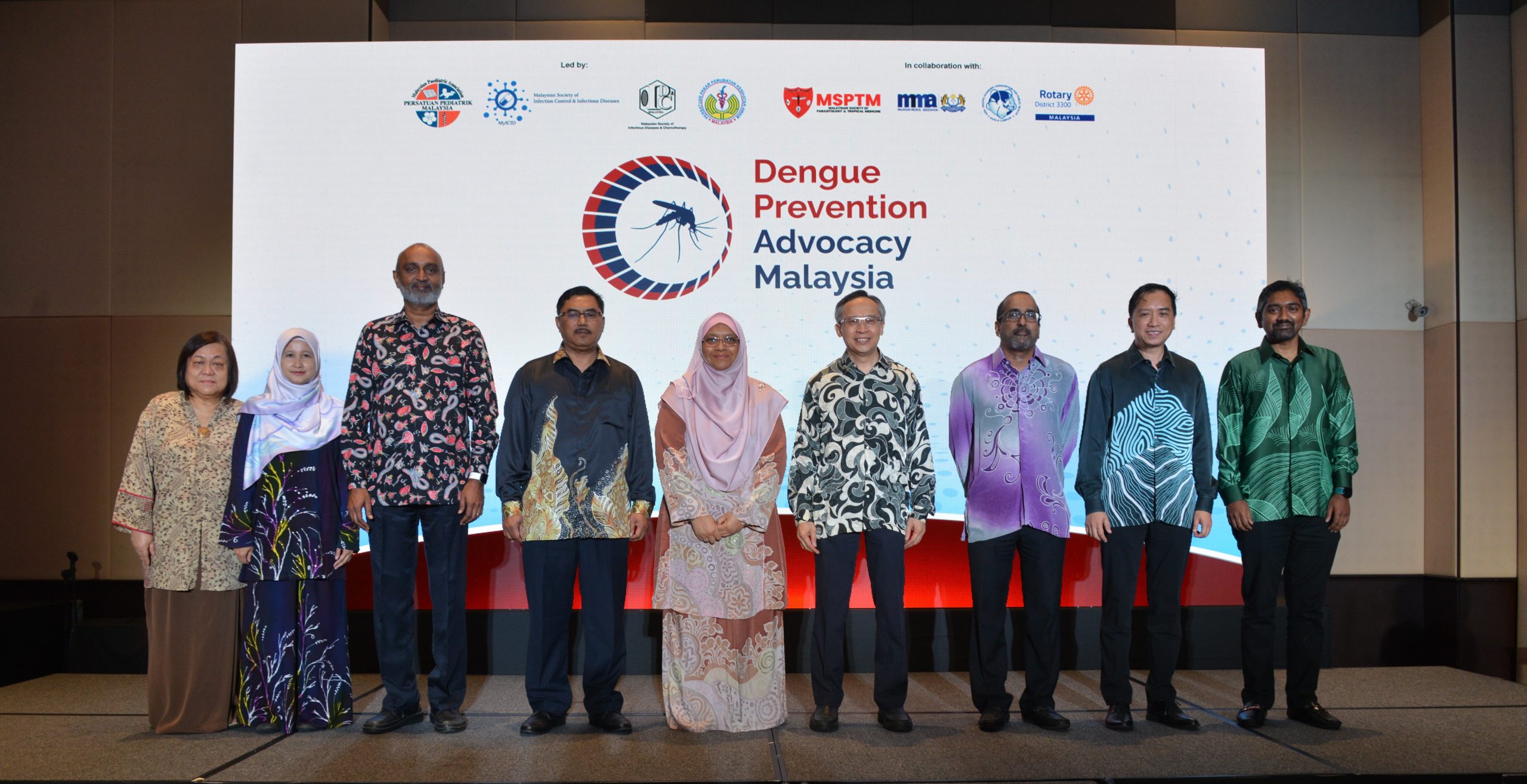WORDS LIM TECK CHOON
On 17 August 2023, the Malaysian Society of Infection Control and Infectious Disease (MyICID), the National Cancer Society of Malaysia (NCSM), and the Malaysian Red Crescent (MRCS), in collaboration with Pfizer Malaysia, launched the MyPELINDUNG campaign.
WHAT’S MyPELINDUNG?
It’s a public educational campaign aimed at mitigating the threat of COVID-19 in Malaysia by increasing the awareness levels of Malaysians on the importance of up-to-date vaccination and seeking of prompt COVID-19-specific treatment.
Among the luminaries gracing the launch were:
- Her Highness Dato’ Seri DiRaja Tan Sri Tunku Puteri Intan Safinaz binti Almarhum Sultan Abdul Halim Mu’adzam Shah, Tunku Temenggong Kedah, who is the National Chairperson of the Malaysian Red Crescent
- Datuk Dr Norhayati Rusli, Deputy Director-General of Public Health, Ministry of Health
- Yang Berbahagia Tan Sri Dato’ Seri Michelle Yeoh, Oscar-winning actress
- Dr Shaharudeen Bin Kamaludeen, the President of MyICID
- Dato Dr. Saunthari Somasundaram, the President of NCSM
- Professor Datuk Dr Zulkifli Ismail, the Chairman of Immunise4Life
- Madam Luksanawan Thangpaibool, the Country Cluster Lead of Pfizer Malaysia, Pakistan and Brunei
A PRINCESS’S WORD OF WISDOM
“Just as it takes many drops to form an ocean, our shared actions—however small they may seem —can create significant impact in the fight against COVID-19,” says Yang Teramat Mulia Dato’ Seri Diraja Tan Sri Tunku Puteri Intan Safinaz.
She adds: “It’s through initiatives like MyPELINDUNG that we can harness our collective strength to navigate this health issue. Together, with the strength of unity and shared responsibility, we can contribute to a healthier, safer nation for all Malaysians.”
WAIT, ISN’T COVID-19 OLD NEWS?
Not so! Yes, Malaysia has made significant strides but the virus responsible for COVID-19 continues to circulate in our communities and can still lead to hospitalizations and even death, especially among high-risk groups.
Hence, the experts driving MyPELINDUNG advocates constant vigilance, updating of COVID-19 vaccinations, adherence to recommended health measures, and prompt seeking of COVID-19-specific treatment if one is tested positive.
VACCINATION IS KEY, EXPERTS SAY
MyPELINDUNG aims to reduce public hesitancy around the COVID-19 booster doses by disseminating scientifically-accurate information and addressing common concerns held by Malaysians about these boosters.
The campaign’s efforts will particularly focus on high-risk groups, as up-to-date vaccination (including booster doses) can reduce their risk of severe illness, hospitalization, and death.
Dr Shaharudeen Kamaludeen, President of MyICID, tells us: “It’s paramount that we understand the critical role vaccinations play in mitigating the severity of COVID-19. Vaccinations, including recommended booster doses, are our primary line of defence against this virus.”
He also adds that prompt medical consultation and treatment after a positive test for COVID-19 are equally vital.
Professor Datuk Dr Zulkifli Ismail, the Chairman of Immunise4Life, further emphasizes the importance of maintaining one’s up-to-date vaccination status.
“Full vaccination significantly reduces the risk of severe disease outcomes,” he says. “We urge everyone, particularly those in high-risk groups, to consider vaccinations as their personal shield against the virus, and to remember that this shield is most robust when all recommended doses, including boosters, have been administered.”
THE ACTRESS ADVOCATES
Tan Sri Dato’ Seri Michelle Yeoh concurs with the experts, adding that she herself had 2 brushes with the COVID-19 vaccine.
She participated in an educational video for MyPELINDUNG, a video that she is very proud of, and will continue to commit to encouraging Malaysians to remain vigilant and take the appropriate protective steps against COVID-19.
“Trust the science,” she urges.
PROMPT & QUICK TREATMENT CAN SAVE LIVES
“The most important thing to remember about treatment for COVID-19 is that it should be started as soon as possible after diagnosis to be effective,” states Dato Dr Saunthari Somasundram. “If you test positive for COVID-19, treatments are available that can reduce the likelihood of severe illness, hospitalization, and death. Please don’t delay because COVID-19 specific treatment must be started within days after you first develop symptoms to be effective.”
Tan Sri Michelle Yeoh concurs. “On screen, I’ve navigated flying stunts and leapt off moving vehicles, but life isn’t an action film, and we can’t afford to wait for the dramatic last-minute rescue. If you’re showing any symptoms, act fast, seek help at once.”
| For more information about the MyPELINDUNG initiative and its efforts to combat COVID-19, please visit https://www.facebook.com/MyPELINDUNG (link opens in a new tab). |







